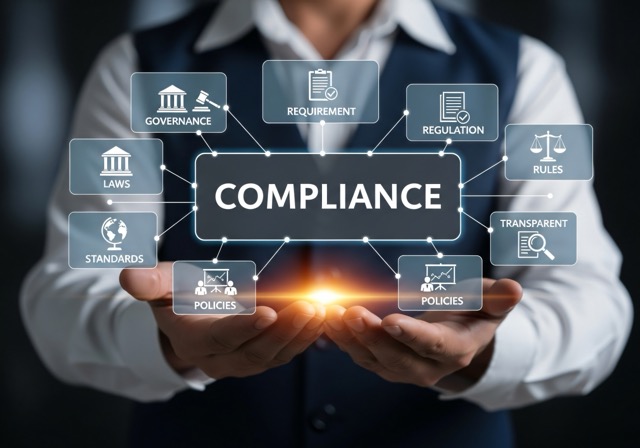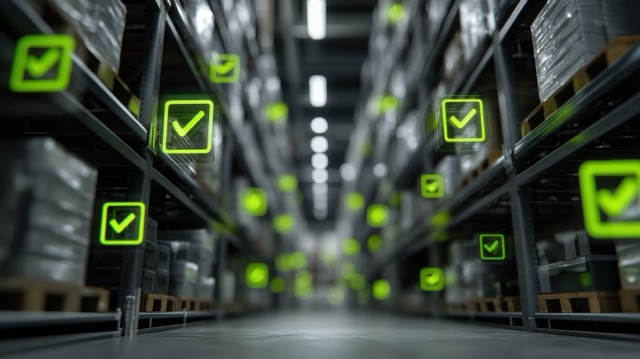
Compliance, Traceability, and Supply Chain Planning: A General Counsel's Perspective
From Legal Oversight to Strategic Insight
For many snack manufacturers, compliance has long been viewed as a necessary obligation, something handled by legal or regulatory teams after operational decisions were made. But that model no longer works. In today's environment of rapid regulatory change, evolving ESG expectations, and global supply chain complexity, compliance must be built into operations from the outset. It is a critical requirement grounded in the need to produce products that not only satisfy consumers but are also safe for consumers. A company's financial performance and reputation are at risk with every bag, box, and pouch of snacks produced. Operators work tirelessly to ensure that their products meet the highest standard and conform to all regulatory requirements.
General Counsels (GCs) are increasingly finding themselves at the center of the evolving supply chain conversation. Their role has expanded beyond legal oversight as ensuring compliance, traceability, and ethical sourcing now means protecting the company’s reputation while upholding its core values and principles. It is also about safeguarding consumers, supporting partners, and strengthening the brand’s integrity across every link in the supply chain.
In many ways, compliance has evolved from a legal necessity into a true strategic advantage.
The Expanding Compliance Challenge
The snack industry faces a unique blend of regulatory and reputational risks. From ingredient sourcing and food safety to packaging sustainability and human rights, oversight is expanding across every link in the chain.
- The FDA's FSMA Rule 204 is raising the bar on traceability. While the compliance date has shifted out to 2028, many firms are moving to identify and trace ingredients from source to shelf promptly.
- ESG disclosure mandates are pushing organizations to track carbon footprint, waste reduction, and ethical sourcing practices with the same rigor as financial reporting.
- Import and labor laws, such as the Uyghur Forced Labor Prevention Act (UFLPA), are forcing greater visibility into supplier networks to prevent goods linked to unethical labor practices from entering U.S. markets.
The question is not whether your company complies today, but whether you can demonstrate compliance tomorrow. And that is where modern supply chain planning systems, powered by integrated data, agentic AI, and intelligent automation, play a pivotal role.

How Legacy Supply Chain Planning Systems Create Legal Risk
Traditional supply chain systems were built for efficiency, not accountability. Data is often scattered across departments: procurement in one system, quality assurance in another, and supplier and contract manufacturer audits in spreadsheets. When regulators or auditors come calling, teams scramble to compile data from multiple systems, often under tight deadlines.
That disjointed approach creates two significant risks:
- Inaccurate or incomplete data makes it hard to prove compliance with confidence.
- Slow traceability that delays responses to quality issues, product recalls, labeling challenges, and/or supplier upsets.
When every hour counts during an audit, investigation, withdrawal, or recall, the entire enterprise is subject to a significantly higher risk profile, with substantial consequences at stake.
How Modern Planning Systems Build Compliance In
The latest generation of adaptive, AI-powered supply chain planning systems flips the script. Instead of compliance being an afterthought, it is built directly into the planning process through data integration, automation, and traceability.
Here is how:
- Unified Data Integration
Modern planning platforms consolidate supplier, manufacturing, logistics, quality, and ESG data into one environment. This creates a single, auditable source of truth that both operations and legal teams can rely on. GCs gain visibility into the data behind sourcing decisions, quality metrics, and regulatory documentation, all in one place.
- Automated Traceability and Recall Readiness
Advanced traceability features track ingredients and materials across every supplier, facility, and distribution point in real time. If a compliance issue arises, affected batches can be identified within minutes. For GCs, that means audit responses are faster, more accurate, and far less disruptive.
- Real-Time ESG Tracking
Companies can now measure and monitor sustainability metrics such as carbon emissions, packaging recyclability, and supplier certifications within the same platform used for demand and supply planning. This not only simplifies ESG reporting but also strengthens credibility with customers and investors.
- Proactive Risk Identification
AI and machine learning models can flag potential compliance risks, such as a supplier changing certifications or emerging geopolitical restrictions, before they turn into violations. By integrating predictive compliance capabilities into planning, companies stay one step ahead of regulatory shifts.
Supply chain planning platforms, such as ketteQ's Adaptive Supply Chain Planning System, powered by its innovative PolymatiQ™ agentic AI engine, bring these capabilities together. By combining operational agility with traceability and audit readiness, snack manufacturers can ensure that compliance and performance are aligned.

The GC as a Supply Chain Partner
The most effective GCs are those who actively collaborate across the enterprise with operations, procurement, and logistics, quality, and planning leaders to assess risk and design compliance into business processes.
Modern planning systems enable this collaboration by giving every stakeholder access to the same transparent, real-time data. When a potential issue arises, whether it is an ingredient traceability gap or a new sustainability disclosure requirement, legal and operations teams can address it together, informed by a shared set of facts and data.
This alignment not only minimizes risk but also enhances overall performance. It builds trust with regulators, retail partners, and consumers.
Turning Compliance Into Competitive Advantage
Forward-thinking snack brands recognize that compliance and growth are closely intertwined. Traceability and data integrity form the foundation, strengthening relationships with retailers who value transparency and integrity. ESG visibility supports brand loyalty among increasingly conscious consumers. Integrated audit readiness saves time and costs when navigating inspections, upsets, or certifications.
The companies that lead in this area are those that treat compliance as an opportunity to differentiate, not just a checklist to satisfy.
By building compliance into supply chain planning, snack manufacturers can:
- Accelerate audit readiness with instant, accurate access to documentation.
- Increase consumer trust by backing sustainability and sourcing claims with verifiable data.
- Enhance operational agility by spotting regulatory risks before they disrupt production.
- Safeguard brand reputation with rapid, data-driven recall and traceability responses.

Compliance Built for the Future
As the lines between legal, operational, and sustainability functions continue to blur, one thing is clear: compliance can no longer live in isolation. It must be woven into the systems and decisions that drive the business daily.
Modern, adaptive supply chain planning platforms like ketteQ, powered by the PolymatiQ™ agentic AI engine, make that possible. They provide snack manufacturers with transparency and control, enabling them not only to meet but also to exceed evolving regulatory expectations, transforming what was once a defensive posture into a foundation for responsible, profitable growth.
For today's GCs, that is not just peace of mind. It is a smart strategy.





